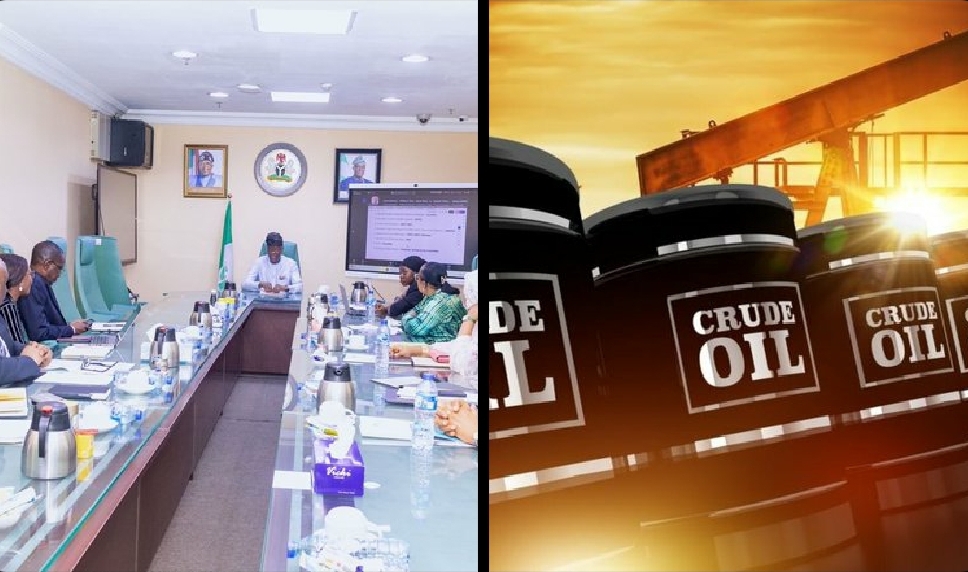
BREAKING NEWS: Federal Minister of Finance Updates on Crude and Refined Product Sales in Naira Initiative

In a significant development for Nigeria’s energy sector, the Federal Minister of Finance has provided a detailed update on the Crude and Refined Product Sales in Naira Initiative, a policy aimed at transforming the country’s petroleum market.
On Tuesday, the Technical Sub-Committee overseeing this initiative held a crucial meeting to evaluate its progress and tackle ongoing implementation challenges.
This strategic policy, backed by the Federal Executive Council (FEC), is designed to strengthen local refining, enhance energy security, and reduce Nigeria’s dependence on foreign exchange in its domestic petroleum transactions.
The meeting brought together a high-profile group of stakeholders, reflecting the government’s commitment to the initiative’s success.
In attendance were the Chairman of the Implementation Committee, Hon. Minister of Finance and Coordinating Minister of the Economy, Mr. Wale Edun, and the Chairman of the Technical Sub-Committee, who also serves as the Executive Chairman of the Federal Inland Revenue Service (FIRS), Mr. Zacch Adedeji.
Other key participants included the Chief Financial Officer of NNPC Limited, Mr. Dapo Segun, the Coordinator of NNPC Refineries, and representatives from NNPC Trading.
The gathering also featured officials from Dangote Petroleum Refinery and Petrochemicals, alongside senior representatives from critical regulatory bodies such as the Nigerian Upstream Petroleum Regulatory Commission (NUPRC), the Nigerian Midstream and Downstream Petroleum Regulatory Authority (NMDPRA), the Central Bank of Nigeria (CBN), and the Nigerian Ports Authority (NPA).
Additional attendees included a representative from Afreximbank and the Committee Secretary, Hauwa Ibrahim, ensuring a comprehensive discussion on the initiative’s progress.
The Crude and Refined Product Sales in Naira Initiative is not a short-term measure but a long-term policy directive intended to align with Nigeria’s broader economic goals.
By conducting crude oil and refined product transactions in Naira, the government aims to minimize the pressure on foreign exchange reserves, which have historically been strained by the need to pay for petroleum imports in dollars.
This initiative supports the growth of local refining capacity, particularly through partnerships with major players like Dangote Refinery, and ensures a more stable supply of petroleum products within the country.
The stakeholders emphasized their unwavering dedication to fully implementing this policy, underscoring its importance to Nigeria’s energy self-sufficiency and economic stability.
During the meeting, the committee acknowledged that, like any major policy shift, the initiative has encountered some challenges. These hurdles, however, are being actively addressed through collaborative efforts among all involved parties.
The government remains committed to resolving these issues to ensure the initiative’s smooth operation.
For instance, since October 2024, the Nigerian National Petroleum Company (NNPC) Limited has been supplying 385,000 barrels per day of crude oil to Dangote Refinery, a move that has bolstered local refining efforts.
In return, Dangote Refinery supplies petroleum products like Premium Motor Spirit (PMS) and diesel to the domestic market, with transactions conducted in Naira.
This arrangement not only reduces the need for foreign currency but also streamlines costs associated with regulatory fees, such as those paid to the NPA and the Nigerian Maritime Administration and Safety Agency (NIMASA), which are now also settled in Naira.
The initiative’s broader implications are profound. By reducing reliance on foreign exchange, Nigeria could save billions annually—potentially up to $7.3 billion, as estimated by the World Bank in 2023 for similar oil-dependent economies.
This financial relief could ease the pressure on the Naira, which has faced significant depreciation due to fluctuating oil prices and global economic challenges.
Moreover, the policy supports national objectives like energy security by ensuring a steady supply of locally refined petroleum products, which could stabilize fuel prices in the long term and reduce the economic burden on Nigerian citizens.
The Crude and Refined Product Sales in Naira Initiative represents a bold step toward economic resilience for Nigeria.
The government’s proactive approach to addressing implementation challenges and the involvement of key stakeholders signal a promising future for this policy.
As the initiative progresses, it is expected to play a pivotal role in transforming Nigeria’s energy landscape, fostering self-sufficiency, and driving sustainable economic growth.


